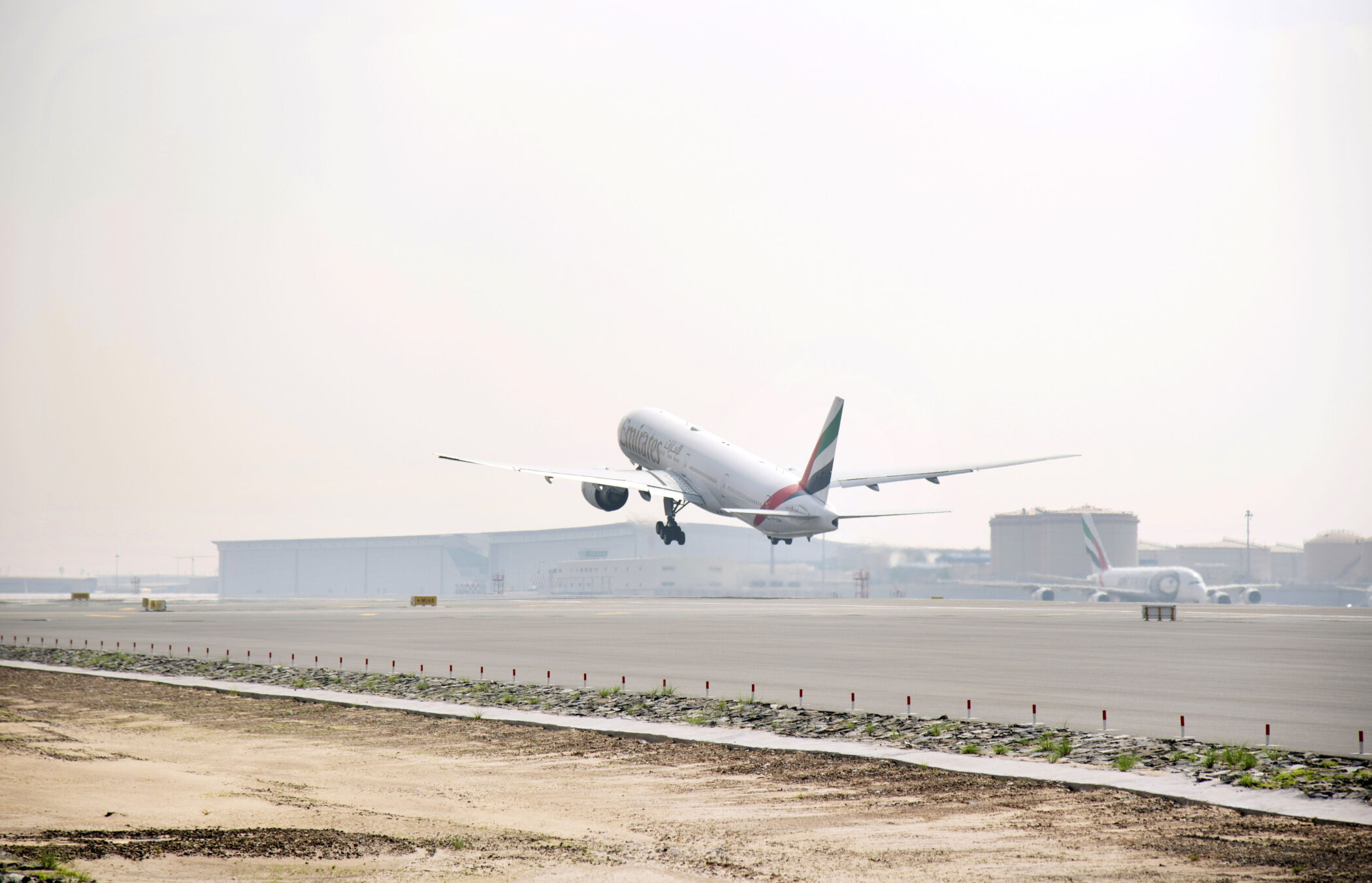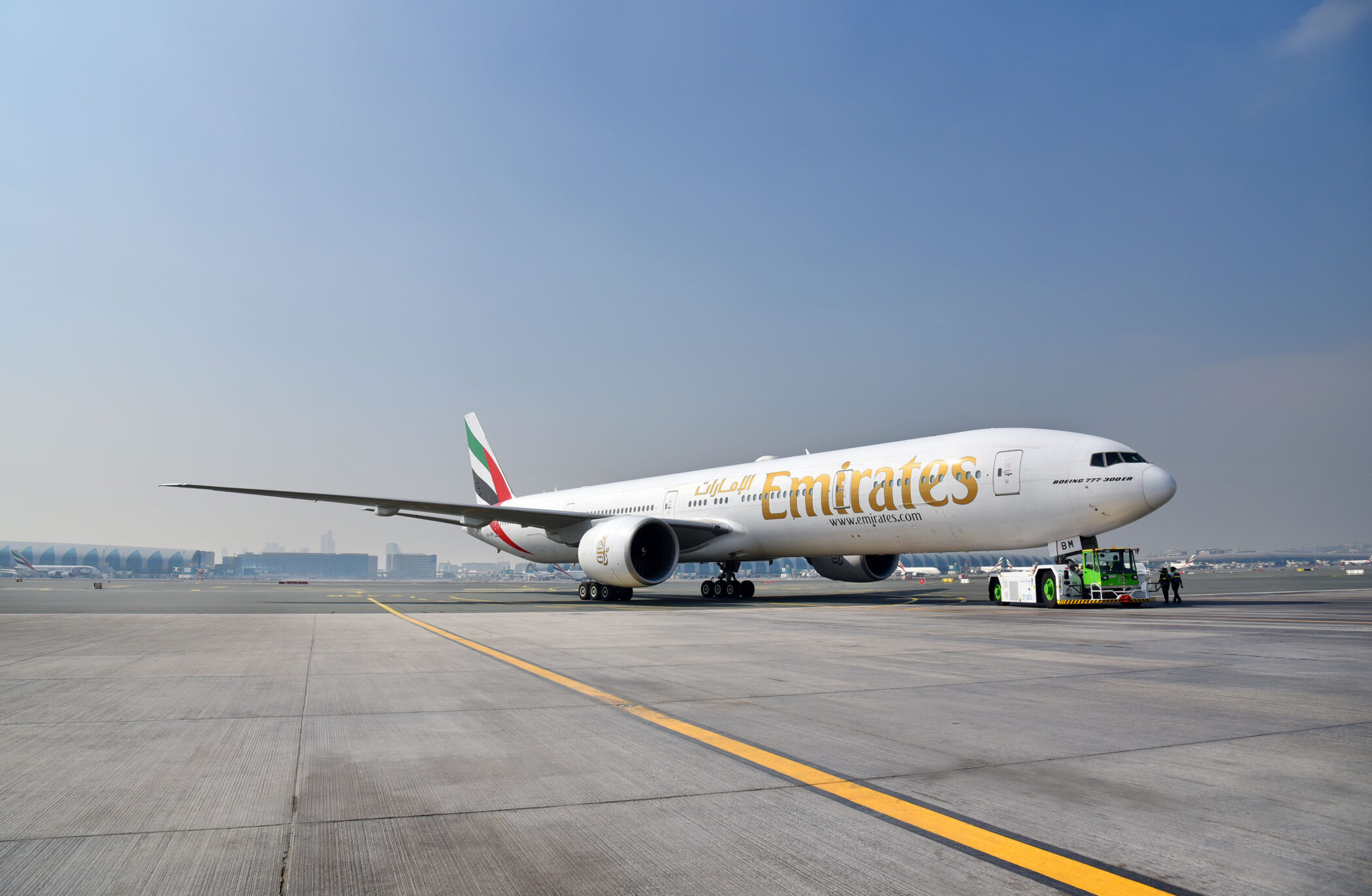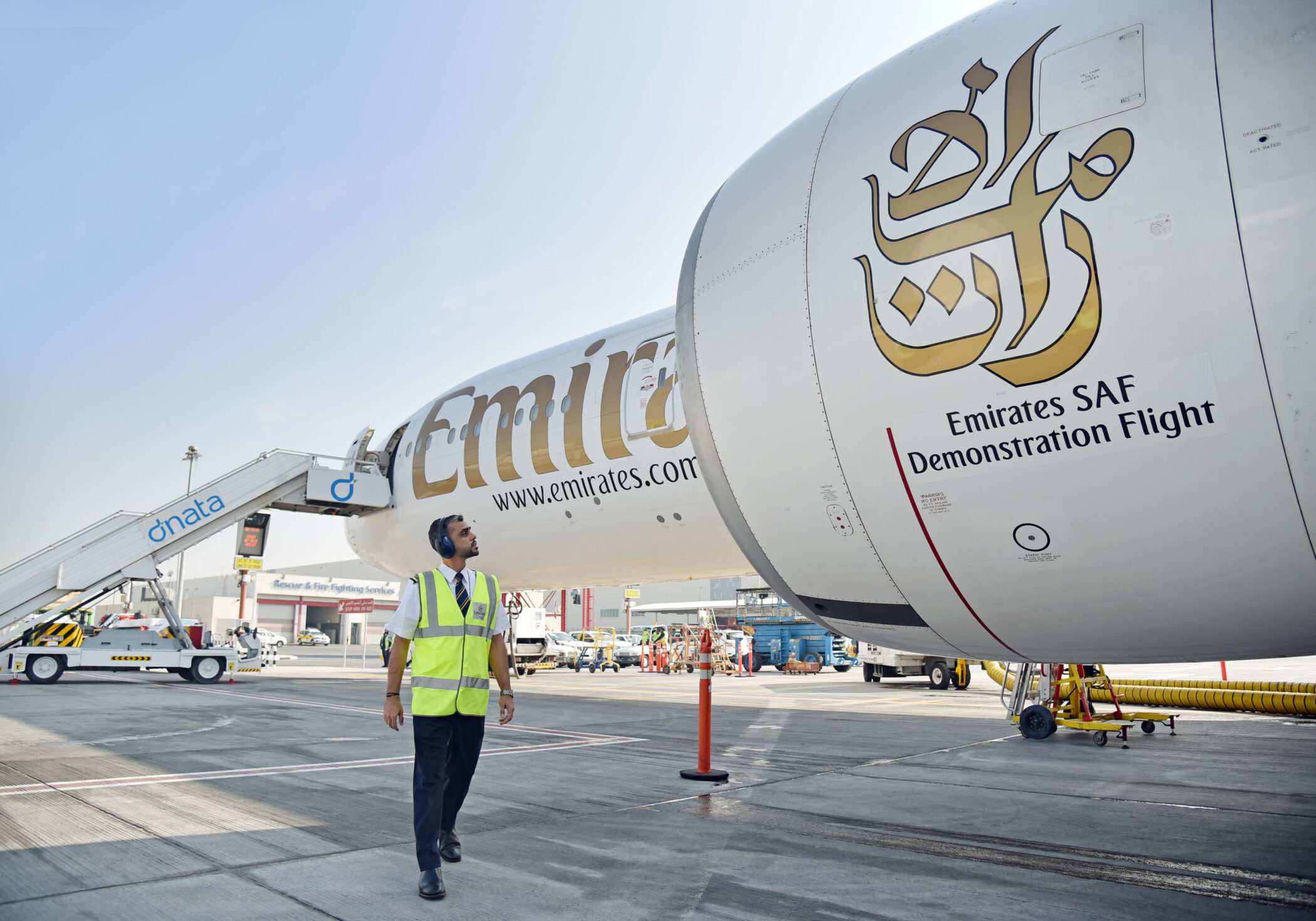Emirates pumped ‘sustainable aviation fuel’ into one of its plane’s engines and successfully conducted the first flight of its kind in the Middle East and Africa. Rose Dykins reports
Dubai-based airline Emirates has operated its first milestone demonstration flight of a biofuel-powered B777-300ER, whereby one of the plane’s two engines was powered with 100 per cent sustainable aviation fuel (SAF), which is typically made from used cooking oil or renewable plant sugars and has a lower carbon footprint over its lifecycle than fossil fuel.
The flight – which departed from Dubai International airport, and flew for more than an hour over the emirate’s coastline – was the first in the region to be powered by 100 per cent SAF in one engine. Working in partnership with GE Aerospace, Boeing, Honeywell, Neste and Virent, Emirates developed a blend of SAF that closely replicates the properties of conventional jet fuel. Following rigorous lab tests and trials, 18 tonnes of SAF were blended using chemicals provided by these partners.
Working in partnership with GE Aerospace, Boeing, Honeywell, Neste and Virent, Emirates developed a blend of SAF that closely replicates the properties of conventional jet fuel. Following rigorous lab tests and trials, 18 tonnes of SAF were blended using chemicals provided by these partners.
The Emirates test flight adds to the growing body of industry data and research around SAF blends and will help pave the way for the standardisation and future approval of 100 per-cent SAF as a replacement for jet fuel. Currently, SAF is approved for use on all aircraft, but only in blends of up to 50 per cent with conventional jet fuel.
The Gulf carrier’s test flight is also timely as the UAE has declared 2023 the “Year of Sustainability”, showcasing its commitment to seeking innovative solutions to challenges such as energy and climate change.
“This flight is a milestone moment for Emirates and a positive step for our industry as we work collectively to address one of our biggest challenges – reducing our carbon footprint,” says Adel Al Redha, CEO of Emirates.

“It has been a long journey to finally see this demonstration 100 per cent SAF flight take off. Emirates is the first passenger airline in the world to operate a Boeing 777 powering a GE engine with 100 per cent SAF. Such initiatives are critical contributors to industry knowledge on SAF, and provide data to demonstrate the use of higher blends of SAF for future regulatory approvals.
“We hope that landmark demonstrations flights like this one, will help open the door to scale up the SAF supply chain and make it more available and accessible across geographies, and most importantly, affordable for broader industry adoption in the future.” Jonathan Wood, vice-president EMEA for renewable aviation at Neste, says: “Neste is working closely together with partners to accelerate the availability and use of SAF, which plays a crucial role in reducing the emissions of air travel.
Jonathan Wood, vice-president EMEA for renewable aviation at Neste, says: “Neste is working closely together with partners to accelerate the availability and use of SAF, which plays a crucial role in reducing the emissions of air travel.
“To fully leverage its decarbonisation potential we need to enable 100 per cent SAF use and test flights like this Emirates flight are an important step towards 100 per cent SAF certification.
“Neste is committed to play our part in ensuring Dubai and the UAE continue to be a leader on sustainability and emission reductions in the aviation sector, as we increase our SAF production capacity to 1.5 million tons per annum by the end of this year. We look forward to growing the supply of SAF to Dubai.”
Saif Humaid Al Falasi, Group CEO at ENOC, adds: “At ENOC, we prioritise working closely with our strategic partners to implement a national roadmap for sustainable aviation fuel. This not only aims to accelerate the decarbonisation of the aviation sector, but also contributes to achieving the UAE’s goals in climate neutrality, enhances the efficiency and conservation of fuel, as well as positions the UAE as a regional hub for sustainable aviation fuel.”
Since 2003, Emirates has run a fuel efficiency programme that investigates and implements ways to reduce unnecessary fuel burn and emissions wherever operationally feasible. Its most significant initiatives include “flex tracks”, or flexible routings – partnering with air navigation service providers to create the most efficient flight plan for each flight.
The airline has also been working with trade body IATA to extend this routing system across the world as a standard operating procedure, and supports IATA’s collective industry commitment to reach net zero emissions by 2050 by exploring ways to increase fuel efficiency, SAF, low carbon aviation fuels (LCAF) and renewable energy.
The first Emirates flight powered by SAF blended with jet fuel was in 2017, which flew from Chicago O’Hare airport on a Boeing 777. The airline received its first SAF-powered A380 aircraft in 2020, and also uplifted 32 tonnes of SAF for its flights from Stockholm that same year.

